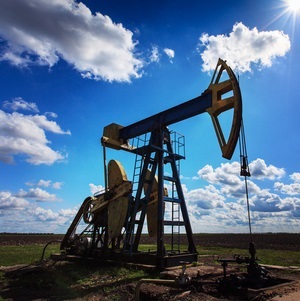
Hydraulic fracturing, or fracking, which involves pumping chemical-laden fluid underground in order to release natural gas deposits, has come under considerable criticism in recent years and has been banned in some countries.
There is interest in the possibility of fracking in South Africa, which has large natural gas deposits in Karoo shale rock.
One of the key concerns is that the chemicals used in the fracking process will contaminate underground drinking water sources with carcinogens. According to the Cancer Association of South Africa (CANSA), up to 1000 chemicals may be used in the process.
Other potentially harmful impacts of fracking include local fresh water extraction and waste water production, air pollution and land degradation.
The report by Britain's chief scientific advisor "Innovation: Managing Risk, Not Avoiding It" which was published on 19 November 2014, focuses on the potential risks of new technological developments. It includes a chapter dealing with fracking in which the author, Prof Andrew Stirling of the University of Sussex, warns that insufficient investigation into the negative effects of this relatively recent technology could lead to serious consequences.
These include asbestos, benzene, thalidomide (the anti-morning sickness pill which caused birth defects in the 1950s), dioxins, lead in petrol, tobacco, many pesticides, mercury, chlorine and hormone-disrupting compounds, CFCs, and fossil fuels.
Sterling adds that not only did such examples lead to grievous health and environmental impacts, there were considerable financial losses for firms and economies that persisted in using them.
“Innovations reinforcing fossil fuel energy strategies—such as hydraulic fracturing—arguably offer a contemporary prospective example,” says Stirling.
Read: How fracking disrupts our hormones
Results of Karoo water tests revealed next month
CANSA, and anti-fracking organisation Treasure the Karoo Action Group (TKAG) strongly support comprehensive investigation into the potential health effects of fracking in the Karoo before such action should be allowed to go ahead.
These two organisations are working together to conduct baseline studies of underground drinking water in an area of the Karoo in which fracking companies have shown interest.
The results of the study will be announced on 21 January 2015.
The hope, says CANSA, is that publishing the baseline data will encourage companies to take greater care with environmental health aspects should they go ahead with fracking.
Ultimately, says CANSA, the aim is to “substantially reducing the cancer risk in drinking water associated with farms in the fracking areas of South Africa”.
Testing for the fracking 'fingerprint'
Dr Carl Albrecht, Head of Research at CANSA, says that in addition to the current baseline studies, the organisation is investigating new ways to test the impact of fracking.
"The fracking process leaves a 'fingerprint' in groundwater - specific chemical isotopes of elements like boron and lithium are released. This can be used to check whether farms even 10km away from where the fracking might be happening are potentially being affected," says Albrecht.
Government shows shift to more cautious fracking approach
TKAG reports that the anti-fracking movement may be starting to sway government opinion with regard to taking a more precautionary approach to fracking.
“In a surprising recent development it has emerged that some government officials are encouraging more research and a strategic approach to shale gas exploration. This is in contrast to the ‘game changer’ stance of President Zuma and the exploration schedule released by the Department of Minerals,” TKAG commented in a press statement released this week.
Following recent meetings by the Select Committee on Land and Mineral Resources, TKAG reports, the acting Chairperson, Mr. M. Rayi, stated that the fracking issue is of public interest and that it was important for stakeholders' views to be heard.
Rayi said that "matters must not be rushed through – even if it means that some processes are delayed."
“It is encouraging to hear this from a government body,” Jonathan Deal, CEO of Treasure Karoo Action Group said.
“During the past four years the Department of Minerals have in a largely secretive process, alternately dithered and made ill-considered decisions regarding shale gas exploration.
This process has occurred without meaningfully and honestly incorporating concerns raised by other departments, the public and stakeholders. The attitude of the Select Committee is commendable and they play an invaluable role as an oversight body.”
Do we need shale gas?
According to geological reports, there is potentially 485 trillion cubic feet of shale gas trapped in the formations of South Afgrica's Karoo region. Shale gas would provide cost-competitive energy security and create jobs.
President Jacob Zuma had said last year that shale gas has the potential to transform South Africa's economy by, among others, reducing the price of its energy.
Read more:
Govt energy policy to cost SA taxpayer 700 billion
The Environmental Protection Agency will tackle fracking pollution
Image: hydraulic fracturing: Shutterstock




 Publications
Publications
 Partners
Partners













